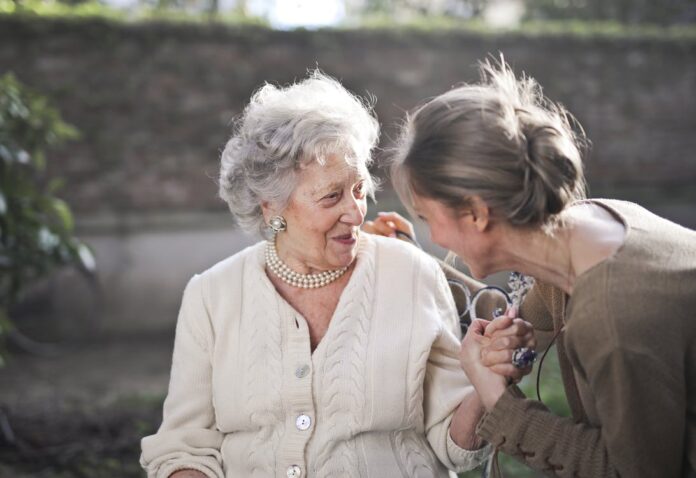
Retirement is rightfully regarded as a chance to make the most of the hard work that you’ve put in throughout your life. If you’ve been looking forward to long lie-ins and relaxing walks with friends, that’s on the horizon. If this feels like your chance to see the world, from a cruise or with a backpack strapped to your back, that moment’s soon approaching. Whatever you’ve been planning, you’ll need your health to be in excellent shape to make the most of your retirement. As such, here are some tips for middle-aged individuals looking to boost their health ahead of finishing work for good.
Fitness and Exercise

Even a little exercise a day can go a long way when you’re middle-aged. For instance, attempting to do a handful of press-ups every morning can help keep your shoulders, back, and arms in good shape – not just for the aesthetic appeal, but to help you avoid back pains and injuries.
The same can be said for many different exercises. If you’re aching from sitting in a chair at work, consider swimming and backstretch as part of your exercise regime. If you’re fit at retirement, you’ll enjoy so many more opportunities to explore and enjoy a work-free life than if you retire unfit, aching, and immobile.
Surgeries

There are a number of surgeries that middle-aged people tend to receive towards retirement that you might be interested in booking yourself in for. Of course, you’ll need a consultation first to see if you’re the right fit for the surgery offered.
There are hip replacements and other arthritis surgeries to help aging bones. Or, you can finally deal with your cataracts by visiting panoptix.myalcon.com and finding a surgeon. Get all of these surgeries and treatments out of the way while you’re still working so that you’re truly free to come to retirement.
Friendships

For both your mental and your physical health, friendships are deeply important in older age. They’re what inspire you to go on long walks, to get on your bike for a leisurely cycle, or even just to head out into town for a chat in a cafe. Make sure you use friendships to inspire physical activity, so you’re both getting a fitness as well as an emotional boost out of seeing one another.
You might even find that certain friends are keen on meeting up specifically to exercise. This is a great way to put in your diary little occasions each week when you’re guaranteed to exercise – like a swim on a Sunday or a little walk around a local park on a Saturday afternoon.
Eating and Drinking

As we age, we tend to develop a taste for the finer things in life. We value sips of a fine wine rather than large glasses of a cheaper bottle. We opt to go to a restaurant that serves sensible portions, not an all-you-can-eat buffet. These new values should carry you through nicely to retirement age, where you should feel comfortable picking and choosing where you indulge and where you don’t.
Nonetheless, it’s important to keep a check on your eating and drinking. Be careful about when you indulge, and keep tabs on how you feel and what you weigh to determine whether you should exert a little more control over your consumption in the future. Make sure, too, that you’re eating a healthy and balanced diet. It’s one of the fundamental cornerstones of healthy life in old age – and it’s something that’s easier than ever to do when you’re retired.
Bad Habits

It really is never too late to give up on a bad habit. The most common bad habit of all is smoking – the cumulative health negatives of which are severe and astonishing. If you’ve been a confirmed smoker for most of your life, you may see old age as far too late to quit – but you’d be wrong.
There’s plenty of research out there that shows that even small and subtle changes to one’s lifestyle in old age can have a significant impact on their overall health. And quitting smoking – whether you do it at 20 or 80 – starts a process of healing in your lungs almost immediately. So it’s worth dropping bad habits, even if you feel that you’re approaching the end of your life.
Mental Health

If you’re close to retirement, you’ll likely have had conversations with people who have already retired. Of those people, you will almost certainly have heard a story of someone who found retirement challenging.
That’s no surprise; the habit of a lifetime – waking, working, sleeping – is broken, leaving you to pick up the pieces and try to build a new lifestyle. The key here is to be compassionate to yourself, let off the pressure, and see what retirement can mean for you. And, of course, make sure you’re sharing it with those you love.
Mental Activity

More than your mental health, your mind simply needs things to occupy. As mentioned above, just think how much your mind was once taken up with thoughts about work, worries about your finances, and the struggles and trials of raising a family at the same time. Now that you’re not occupied by any of these things, it’s common to fall into a state of listlessness, feeling well and truly bored with life.
This, of course, simply will not do: you haven’t worked all your life in order to have a terribly dull retirement. Instead, you should do as millions of other retirees do every year: find yourself a project, and make it a passion that you invest in each and every day. Whether you choose to restore vintage furniture or paint little landscape scenes out in nature, keeping yourself mentally engaged is important for those who have recently retired.
There you have it: some essential health tips for soon-to-be-retirees this winter. Remember that you’re still very much in the driver’s seat when it comes to your health, despite more regular doctor’s visits and little aches and pains in your body. You’re still able to make positive health decisions to prolong a happy and vibrant life.








